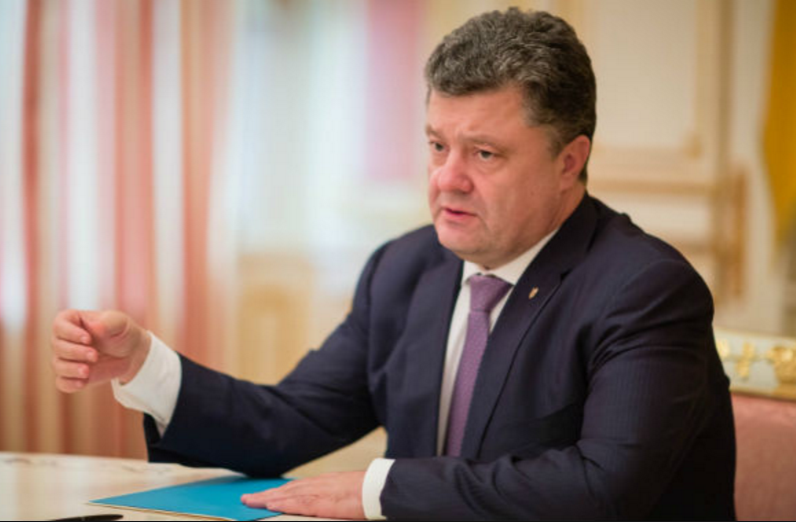Poroshenko accused of following in Yanukovych’s tracks over retrograde law

A law recently passed and signed by the President in blitzkrieg fashion strips the heads and deputy heads of local state administrations of their civil servant status, with this removing any requirements for their appointment on a competitive basis, and restrictions on political party affiliation. The bill was criticized by the opposition as allowing the President dangerous freedom to appoint who he wants, and the Head of the authoritative Centre for Political and Legal Reform [CPLR] has specifically accused President Petro Poroshenko of following a path first taken by his predecessor, Viktor Yanukovych.
Draft Law No. 7126 introduces amendments to the various laws regulating the civil service. It was tabled in parliament by the largest faction in the Verkhovna Rada, the Bloc of Petro Poroshenko, together with ‘The People’s Will’. It was adopted both as a base, and then in full on the same day, November 9, 2017, gaining 234 votes (a modest, though comfortable majority).
In a short piece entitled ‘Poroshenko is following in Yanukovych’s footsteps’, Ihor Koliushko, head of CPLR, criticizes both the infringements in procedure and the dangerous content of the bill. It was in fact drawn up, he notes, by the President’s Administration, and was adopted unexpectedly, without the due procedure for review and discussion.
According to the amendments introduced to the relevant laws, the heads of regional and district [from the Ukrainian oblast and raion] state administrations cease to be civil servants, however are not assigned any other legal status. This, Koliushko says, creates the possibility of determining, without any regulatory restrictions, who gets appointed or dismissed. It is this, he assumes, that was the very point of the draft bill.
The President’s power to appoint or dismiss heads of local state administrations is set out in Article 118 of Ukraine’s Constitution in Article 118. That, however, states only that the President makes his appointment at the submission of the Cabinet of Ministers, without any indication of how the government chooses candidates. There is no clarification either as to the grounds, and the circumstances for a decision to dismiss a head.
Until now the heads of local administrations and their deputies had civil servant status, and therefore it was the Law on the Civil Service that regulated how the Cabinet of Ministers put forward their submission.
There is a major difference, he notes, between a situation where something is as yet unregulated by legislation, but where government officials act in accordance with established tradition, and the current situation where there was legal regulation which a state executive body has revoked out of political motivation.
This point is critical and Koliushko repeatedly stresses that the executive body “has not changed, but just abolished [the status quo], creating ‘a grey zone’ in which it begins to act at its own discretion and in its own interests.”
His colleague from CPLR, Viktor Timoshchuk, is in no doubt that the bill was prompted by the approach of presidential elections and the perceived need to create a structure “able to ensure the election result required by the Head of State”.
The procedure for choosing heads of the state administrations has been closed to the public. This, both Timoshchuk and Vadym Miskyj from the Rehabilitation Package of Reform note, is a return to the times of Leonid Kuchma and Yanukovych, to a system where the President can install ‘reliable’ candidates in all such posts. The latter will now be able to belong to a political party, be elected to local bodies of power, thus combining their positions in the executive with elected posts.
For the last one and a half years, Timoshchuk notes, any Ukrainian citizen meeting the relevant requirements could aspire to become the head of a district or regional administration and the public could monitor the process (viewing the results of tests, or interviews with candidates, etc.). That has now been killed by this new bill, with which, he says, the government “has rejected the initiated democratic tradition of transparent and profession competition for the posts of head of local state administrations”.
The implications regarding the likely shortfall in professionalism of people holding such posts are also enormous. There will no longer be the protection of an appointment for five years, and it can safely be assumed that there will be new appointments every time the government or President changes. This was a problem for Ukraine for many years, one that there had seemed to be the will to resolve.
Under Yanukovych (and earlier), one of the very widely used methods of influencing elections was the use, or more accurately, abuse of administrative resources. As Timoshchuk puts it, the local administrations would essentially turn into election headquarters before any election, with the motivation for them strong, as they risked losing their jobs if ‘their candidate’ lost.
The situation over the last year and a half had, in any case, not changed so radically. Timoshchuk notes that sometimes competitions for posts were simply not announced, and the selection commission tended to be almost totally controlled by the government. There had, however, been a move in the right direction which has now been reversed.
Timoshchuk suggests that those in power have been frightened by the prospect of transparent competitions and the need to appoint competent candidates adequate to the task. That, Timoshchuk says, proves that the situation is even worse than we might have thought, since they evidently don’t have decent candidates to put forward on a transparent, competitive basis.





